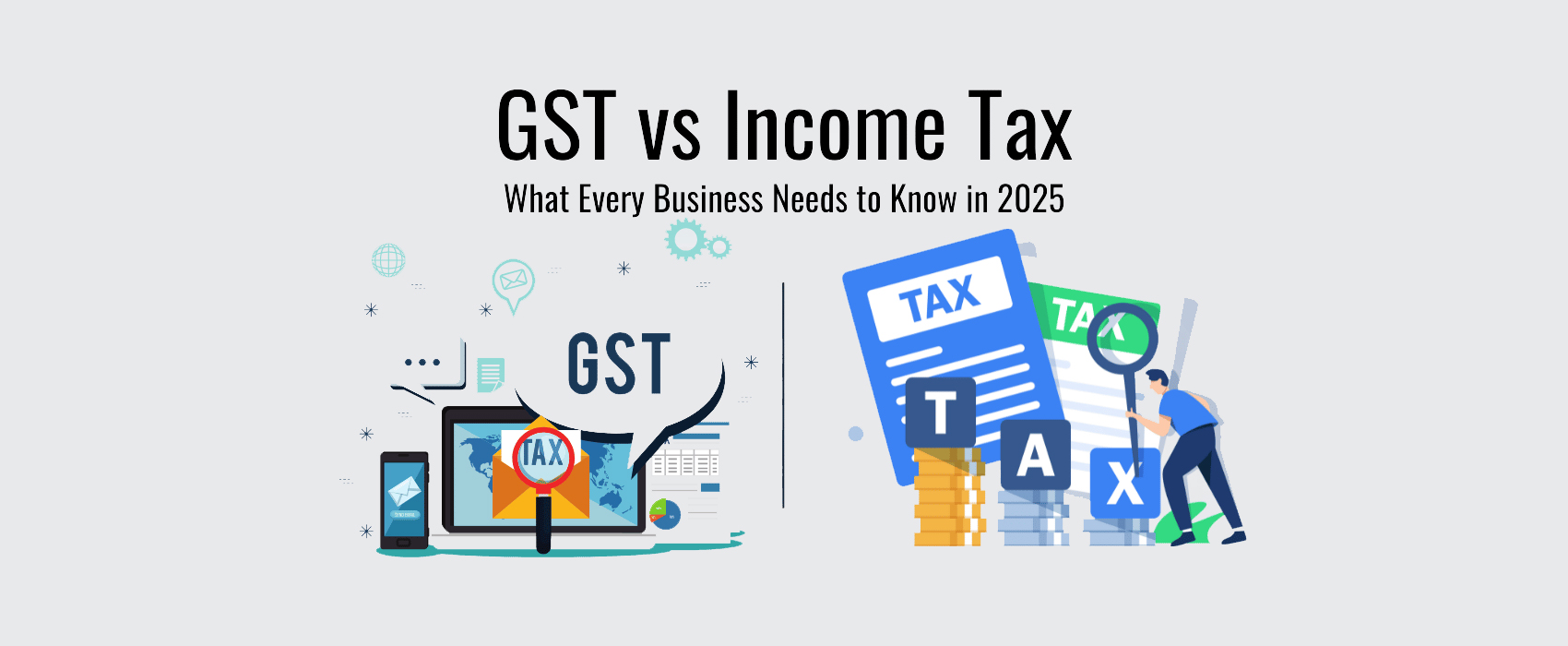
GST vs Income Tax: What Every New Business Owner Must Know
Starting a business in India comes with a long list of responsibilities—understanding taxation is one of the most critical. Among the most important tax obligations for any new business owner are GST (Goods and Services Tax) and Income Tax. Though both are mandatory under Indian law, they serve different purposes and have distinct compliance structures.
1. Nature of the Tax
- GST is an indirect tax levied on the supply of goods and services. It is ultimately borne by the end consumer but collected and remitted by the seller or service provider to the government.
- Income Tax is a direct tax levied on the income or profit earned by individuals, businesses, or organizations during a financial year.
2. Applicability for Businesses
GST:
- Mandatory if your aggregate turnover exceeds ₹40 lakhs (₹20 lakhs for services or special category states).
- Applies even if you’re not making profits.
- You need to charge GST on sales, file regular returns (monthly/quarterly), and maintain detailed invoices.
Income Tax:
- Applies to all businesses, regardless of turnover, if they earn taxable income.
- Tax is paid on net profit after deducting allowable business expenses.
- Return filing is annual, though advance tax payments may be required quarterly.
3. Registration Requirements
GST:
- Businesses must register under GST once turnover crosses the threshold or if they fall under mandatory registration categories (e.g., inter-state suppliers, e-commerce sellers).
Income Tax:
- Every business must obtain a PAN (Permanent Account Number).
- Partnership firms, LLPs, and companies must file Income Tax returns regardless of profit or loss.
4. Returns and Filing Frequency
GST Returns:
- Businesses must register under GST once turnover crosses the threshold or if they fall under mandatory registration categories (e.g., inter-state suppliers, e-commerce sellers).
Income Tax Returns (ITR):
- Every business must obtain a PAN (Permanent Account Number).
- Partnership firms, LLPs, and companies must file Income Tax returns regardless of profit or loss.
5. Penalties and Consequences of Non-Compliance
GST:
- Late fees, interest, and suspension of GSTIN for non-filing.
- Input tax credit may also be restricted.
Income Tax
- Interest under Section 234A/B/C and penalties for late filing or under-reporting.
- Non-filing may lead to scrutiny or prosecution in serious cases
Why Understanding Both Matters
As a new business owner, managing GST and Income Tax correctly ensures:
-
- Avoidance of legal complications
- Improved cash flow management
- Smooth audits and investor readiness
- Access to government benefits (e.g., input tax credit, deductions
With AI-driven audits, the system can quickly flag discrepancies, reducing human intervention and ensuring a fair taxation process.
How MY CA India Supports New Businesses
At MY CA India, we assist startups and small businesses with:
-
- GST registration, invoicing, and return filing
- Income Tax planning, computation, and return filing
- Bookkeeping and financial record management
- Compliance reminders and expert guidance
Our focus is on simplifying taxation so that you can focus on growing your business with confidence.








